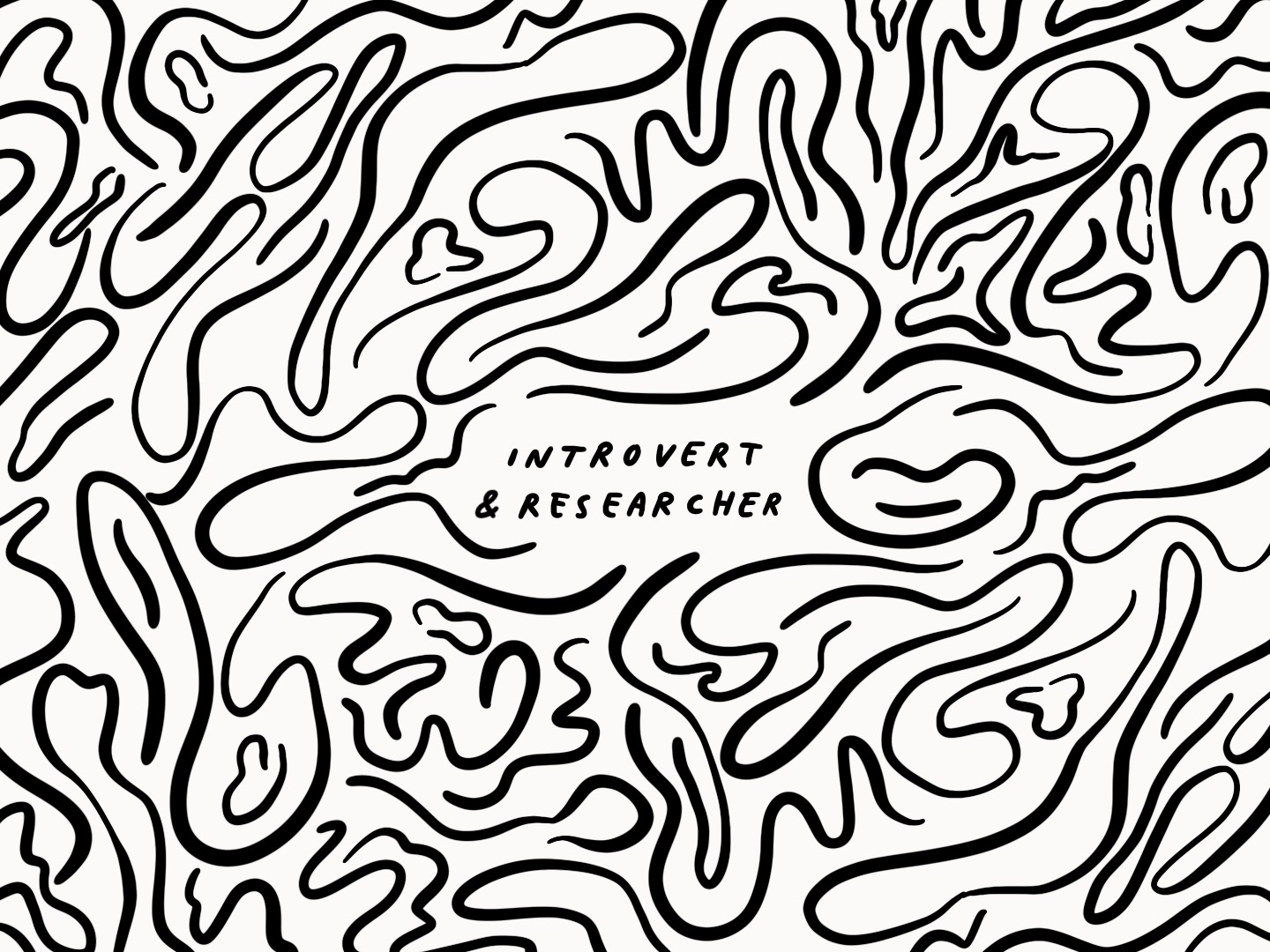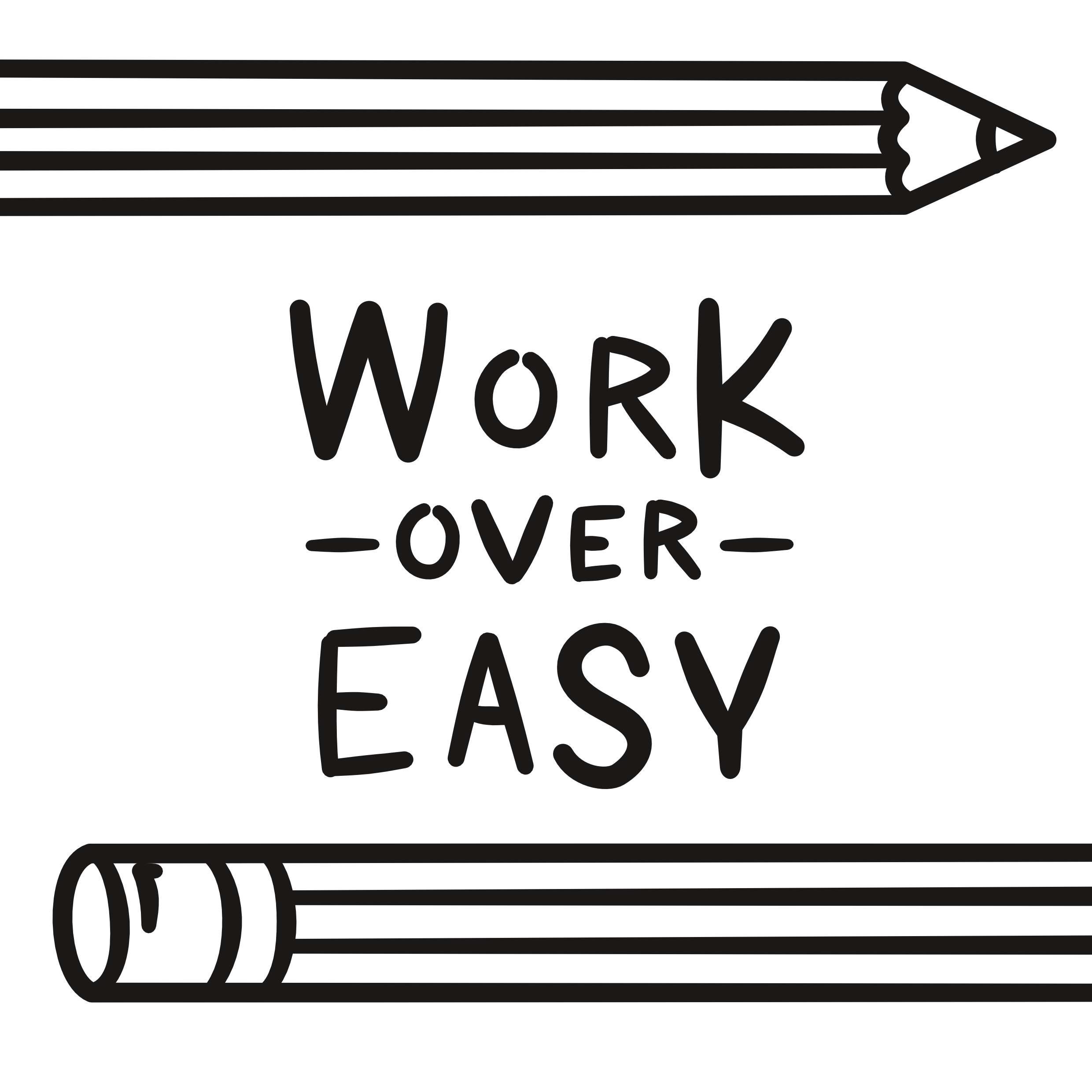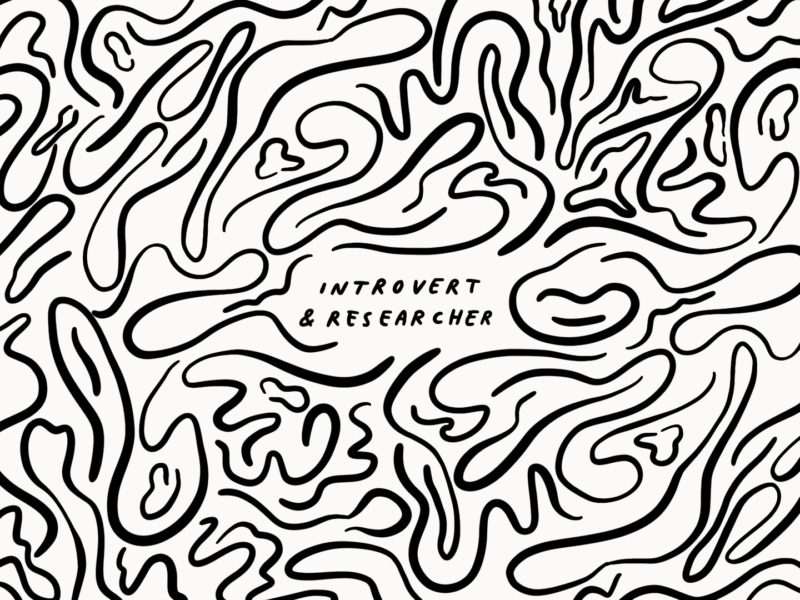Every day I get up and I go to work as a design researcher. I enjoy my work and I’m getting better at every day. But I have been told a number of times by other researchers, by designers, by well meaning by standers, that user research is a job for extroverts. I most certainly am not an extrovert.
Well, let me rephrase that. I’ve been told more times than I can count that it’s not a job for introverts. No one ever says a thing is for extroverts, but they are happy to exclude introverts with the assumption the norm is extroversion.
They see introverts as shy and awkward and antisocial. I can certainly all of those things. You can be shy and an introvert without a doubt. But that’s not what it means to be an introvert.
As Susan Cain, author of Quiet says, there are lots of definitions of what it actually means to be more on the introverted side of the spectrum, and it is a spectrum. But one that she seems to go back to, along with the idea of where we get our energy is “‘people who prefer quieter, more minimally stimulating environments.’ The key is about stimulation: extroverts feel at their best and crave a high degree of stimulation. For introverts, the optimal zone is much lower.”
But even that definition might seem to suggest that user research isn’t for the introvert at heart. User, or design, research in its current format involves a lot of ethnography, of speaking to strangers, of new environments, of absorbing stimulation. It’s a people and adventure job.

It’s also a job that’s about listening and paying attention to the people you’re researching with. The natural quietness of introverts is usually read as shyness, which I can understand and is probably sometimes the case. But that potentially slightly awkward style is often because “introverts want to take in what you’re saying, think about it and then respond, while extroverts want to engage in a back-and-forth.” While building a back-and-forth rapport with participants to make them comfortable is hugely important, research relies on being quiet and taking in what you’re being told or shown
Research also relies on you picking up on a whole range of details. Introverts are often highly sensitive people, which means you pick up on everything around you from sounds to sights to smells. That’s why they’re often overwhelmed or have to quietly process in stimulating scenarios. That’s also why if you leave an introvert in a research session and give them time to process what they’ve just been part of they can pick up on details other people might have missed. This might come at the cost of them not saying as much, but having someone who can watch body language in the room is never a negative.
When you’re doing research you need to be able to relate to and work with all kinds of people. Somewhere between 16 and 50 percent (I know that’s a big range) of people are introverts. So you’re bound to meet a few when you’re out and about doing research. When you’re an introvert, I think it’s sometimes easier to notice the signs that someone else is on your quiet wavelength and adjust your style to suit. Plus, I always like to start any co-design sessions with some time for people to do some silent and solo work where there’s time to write answers down, in part because that’s what I like to do.
While a lot of what’s visible about research from the outside is the fieldwork, fieldwork is very rarely valuable without careful consideration and analysis. That’s something introverts are notoriously good at. We don’t make quick decisions and we’re not bold, but we are contemplative and able to weigh up a whole range of information, which is key to getting insights out of the data you get from fieldwork.
Those are just some of the ways that introverts, contrary to popular opinion, can make great user researchers. But there are some things you need to do to be able to thrive as an introvert in a supposedly extroverted role.
Build in time for reflection. This is the big one. I’ve realised that I can’t process a session as quickly as my colleagues might like. I’ll be hounded with ‘how did it goes’ as soon as I get back to the office. I am forever grateful that they’re excited to hear about what we’ve found. But for me to share valuable insights I need some time alone. So now, I schedule in feedback sessions (close to but not immediately after) research. That way everyone knows they’ll hear about what happened but I can take time to process.
Understand that not everyone will work in the same way as you. When out researching with more extroverted colleagues, I’ve often found myself steamrollered. I leave a few seconds after someone has spoken to make sure they’re done and to let me formulate a meaningful question based on what they’ve shared. Other people aren’t so comfortable with that silence. If that happens to you, you can either just accept it and spend your energy observing or try to explain your style before setting out. Either way know you’re doing valuable work.
Just because everyone else likes to brianstorm doesn’t mean you have to be in a whirlwind. I’m not great at big group exercises where everyone is talking. My sensitive brain is taking in a lot of information and I can’t process it quickly enough. Plus, I genuinely enjoy listening. But often in design teams decisions get made in groupthink sessions. As a researcher, your job is often to be the voice of the user in the room to feedback insights. If you’re just listening, your team don’t get the value of that advocacy. So, what I’ve found works for me is to spend a little time beforehand thinking about the key points and quotes from the people I’ve spent time with.
Even with those caveats, I know that user research isn’t a job for all introverts, just like it’s not a job for all extroverts. If you find meeting new people particularly taxing, there are so many other brilliant roles for you my quiet friends.
Design research hits a sweet spot for me. I’m fascinated by people but I do often find big social interactions tiring and I’m not a big personality. But with research I get to meet so many fascinating people. I get often get to talk to them about things they’re passionate about, we get straight to the good stuff, it’s not small talk. I get to people watch. I get to listen. I get to have this already defined neutral role in a conversation. I get to spend time with people one on one. I get to do all of that, then consider my findings and affect real change.
That’s what I’m thinking everyday when I wake up to go to work, not that I’m not the extroverted people person I’m sometimes expected to be.


